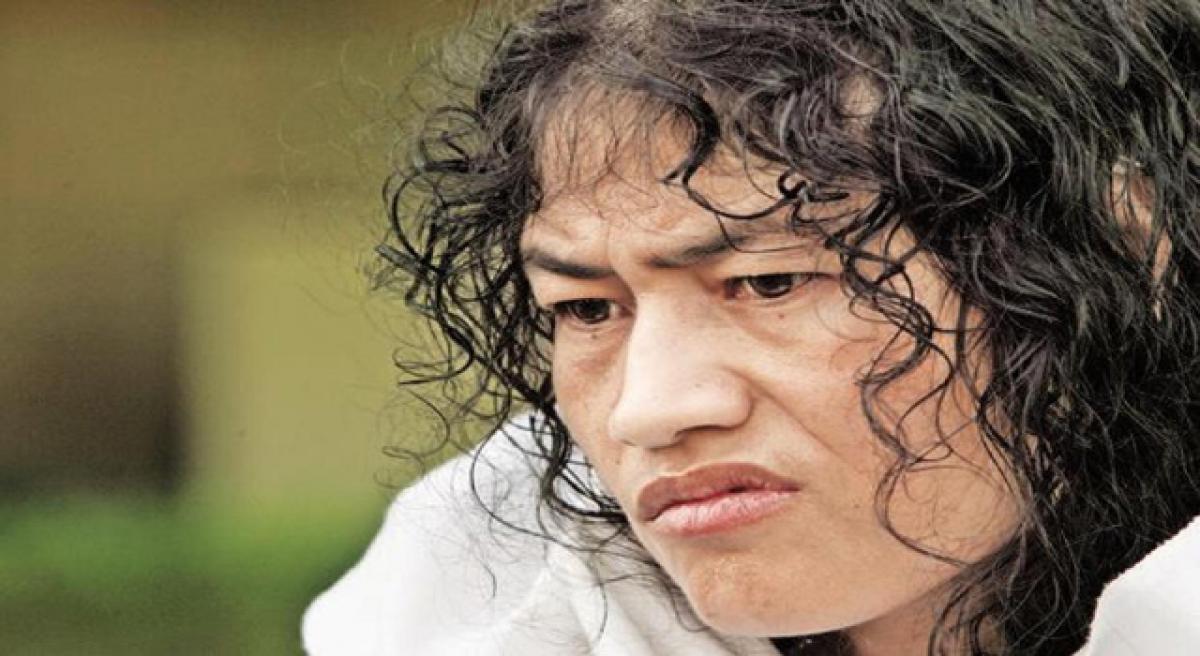Live
- New AC rake adds 13 more ‘cool’ train services on Mumbai suburban section
- Malaika Arora is living her best life on a moving train
- IPL: Is Venkatesh Iyer KKR’s Next Captain?
- Dalit youth beaten to death in MP's Shivpuri, four arrested
- UN welcomes Israel-Lebanon ceasefire agreement
- Yuvana’s Mesmerising Kuchipudi Debut
- Shiv Sena's Kayande slams LoP Gandhi over Savarkar comments
- India Open Competition in Shotgun begins in Jaipur, paving way for Nationals' qualification
- Black Friday 2024: History, Importance, and What to Expect
- Indian healthcare market projected to reach $638 bn by 2025: Report
Just In

Sixteen years after starting her path-setting hunger strike demanding repeal of the Armed Forces (Special Powers) Act, Manipur\'s ‘Iron Lady’ Irom Chanu Sharmila has decided to end her fast on August 9 and contest Assembly elections as an Independent candidate.
Imphal: Sixteen years after starting her path-setting hunger strike demanding repeal of the Armed Forces (Special Powers) Act, Manipur's ‘Iron Lady’ Irom Chanu Sharmila has decided to end her fast on August 9 and contest Assembly elections as an Independent candidate.
The 44-year-old iconic rights activist, who has been forcibly fed through a nasal tube since 2000, said she would join politics as she no longer believes that her fast will lead to the repeal of the "draconian" AFSPA. "I will end my fast on August 9 and contest elections on an independent ticket," Sharmila told the media after coming out of a local court here where she is facing a trial for attempting suicide.
"I will join politics and my fight will continue," said Sharmila, who has refused to eat or drink anything since November, 2000 and is forcibly fed through a nasal tube in Imphal's Jawahar Lal Nehru Hospital, a special ward of which acts as her prison. Assembly elections in Manipur are scheduled early next year.
In the past, many political leaders have met Sharmila and tried to cajole her into joining politics but she has rejected all offers.
She also expressed her desire to get married after coming out of prison on August 9.
The civil rights activist is known to have a boyfriend, a British national of Indian origin, who has in the past been in trouble with Sharmila supporters.
On the charge of attempting suicide by means of a fast unto death in 2006 at Jantar Mantar in New Delhi, she has been arrested, released and then re-arrested from time to time.
The maximum punishment under Section 309 of IPC is a one-year jail term. On November 2, 2000, an Assam Rifles battalion had allegedly killed 10 civilians in a village near Imphal.
Three days later, Sharmila embarked on her fast demanding revocation of AFSPA, which allows security men to even kill a person on suspicion without the fear of facing a trial in court.
Sharmila's non-violent resistance has become a nucleus for collective protest against AFSPA in the northeastern states.
Her Gandhian-like struggle has won her several human rights awards including the 2007 Gwangju Prize for Human Rights, which is given to "an outstanding person or group, active in the promotion and advocacy of peace, democracy and human rights".

© 2024 Hyderabad Media House Limited/The Hans India. All rights reserved. Powered by hocalwire.com







